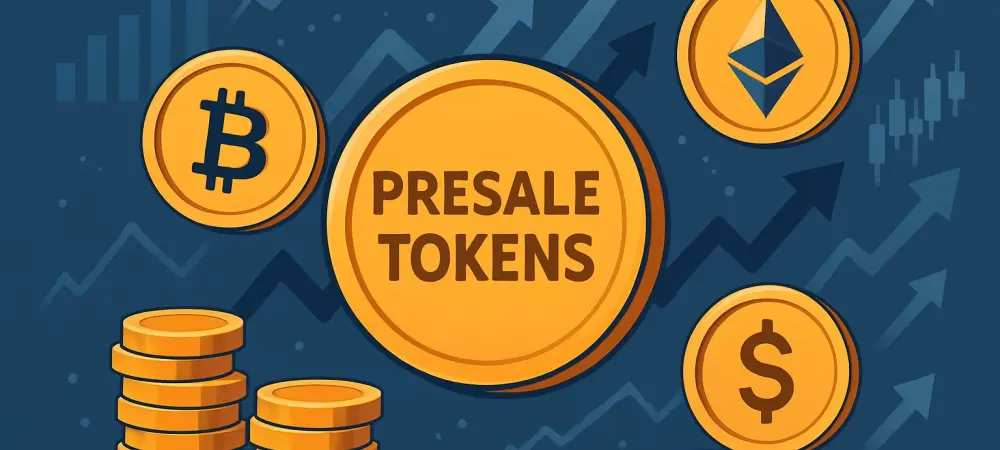As the cryptocurrency market unfolds diverse investment opportunities, presale tokens are gaining notable attention amidst the vigorous activity surrounding Bitcoin (BTC) and Ethereum (ETH) ETFs. In the vibrant ecosystem of digital currencies, institutional players continue to funnel significant funds into established cryptocurrencies, prompting burgeoning interest and optimistic trends in ETF investments. Meanwhile, the emergence of presale tokens such as Solaxy (SOLX), BlockDAG (BDAG), and FloppyPepe (FPPE) highlights the dual-track approach where traditional and innovative investments coexist, offering varied prospects for both large-scale institutions and agile individual investors. This phenomenon illustrates the dynamic interplay of security-focused assets alongside the high-stakes potential of newer financial instruments, setting the stage for a multifaceted investment landscape in crypto.
Institutional Demand for Bitcoin and Ethereum ETFs
The institutional demand for Bitcoin and Ethereum through ETFs is at the forefront of current investment strategies, exemplified by substantial financial inflows. Recent activities saw a surge of 1,490 BTC and 85,340 ETH added to spot ETFs in a single day, underscoring the strong bullish sentiment that permeates the market. Institutions now reportedly hold over 30% of Bitcoin’s circulating supply, indicating a significant asset concentration within this investor segment. Such developments reflect confidence in Bitcoin’s stability and Ethereum’s potential growth, as analysts predict ETH could reach $10K, bolstered by considerable purchases amounting to $240 million. As institutional investors consolidate their positions, the overall market momentum appears poised for explosive growth, reinforcing Bitcoin and Ethereum as cornerstones of cryptocurrency portfolios and emblematic of future financial trends in digital assets.
The influx of institutional capital into Bitcoin and Ethereum ETFs signifies a notable pivot towards these cryptocurrencies as long-term stable investment vehicles. ETFs facilitate traditional market participants’ engagement with the digital currency sector, offering regulation-backed exposure without the complexities of directly holding cryptocurrencies. This shift indicates broader acceptance of Bitcoin and Ethereum as essential portfolio components, driven by their established track records and perceived reliability. Moreover, the comprehensive scope of these ETFs aligns with investor demands for diverse and resilient options within a fluctuating market. As institutional interest heightens, ongoing additions of Bitcoin and Ethereum to ETF holdings continue to drive up their value, paving the way for enduring impact on cryptocurrency valuations and signaling robust demand.
The Emergence of Presale Tokens
While institutions focus on Bitcoin and Ethereum, individual investors are increasingly attracted to presale tokens, emphasizing speculative high-return prospects in evolving digital assets. FloppyPepe (FPPE), inspired by the meme coin phenomena of Dogecoin and Shiba Inu, has recently amassed over $530,000 with expectations to reach $2.5 million in presale revenue. Its appeal stems from attractive features such as an affordable entry price, community-driven demand, and investment benefits including an 80% bonus for early adopters, staking rewards, passive earnings, and airdrops. These incentives offer substantial returns, positioning presale tokens as enticing alternatives for retail investors seeking to capitalize on market volatility and speculative promise. The excitement surrounding FloppyPepe epitomizes the vibrant, adventurous spirit of the cryptocurrency market, where innovative presales provide new avenues for growth.
In parallel, Solaxy (SOLX) represents a notable entry in the realm of presales by pledging significant performance enhancements for Solana (SOL) through its status as the first layer-2 scaling solution. This initiative addresses critical issues such as congestion and transaction failures, promising substantial improvements aligned with broader trends in cryptocurrency innovation. Meanwhile, BlockDAG (BDAG) underscores its commitment to sustainability, efficiency, and speed with its next-gen layer 1 blockchain, promising lucrative long-term returns. These emerging tokens emphasize the dynamic nature of crypto-market investments, illustrating the potential for groundbreaking advancements that attract individual investor interest. The strategic incentives and technological progress embedded in these presale tokens highlight their role in reshaping the investment landscape, catering to the aspirations of retail investors eager for high-yield opportunities beyond the confines of more established routes.
Navigating the Dual Investment Landscape
Institutional interest in Bitcoin and Ethereum ETFs is reshaping investment strategies, evidenced by substantial financial inflows. Recent activity highlighted the addition of 1,490 BTC and 85,340 ETH to spot ETFs within a single day, showcasing the prevailing bullish market sentiment. Institutions now hold over 30% of Bitcoin’s circulating supply, demonstrating significant asset concentration among these investors. This trend signals confidence in Bitcoin’s stability and Ethereum’s growth prospects, with analysts predicting ETH might reach $10K, buoyed by purchases worth $240 million. As institutional investors strengthen their positions, market momentum appears set for substantial growth, establishing Bitcoin and Ethereum as core elements of cryptocurrency portfolios and forecasting promising trends in digital assets. Furthermore, these ETFs offer regulated, straightforward access to these currencies, appealing to mainstream investors and reinforcing their role as essential portfolio components amidst fluctuating market conditions.

